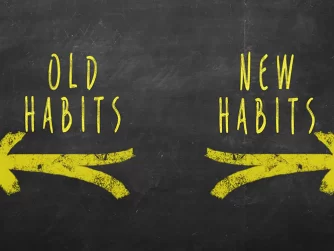As a personal trainer and certified nutritionist who’s spent more than two decades helping people move, breathe, and live better, there’s one underrated element of wellness I always come back to: fresh air.
I know, it sounds basic. But sometimes the simplest things are the most powerful.
Whether you’re on a hiking trail, walking your dog through the park, or just sitting on your porch with a cup of coffee, that dose of clean outdoor air is doing more for your body and mind than you might realize.
So today, let’s break it down in simple, real-life terms: What exactly does fresh air do for your body? For your brain? Is there real science behind it? And can something as simple as stepping outside really help you feel better?
Let’s dive in.
What is “Fresh Air,” Exactly?
First, let’s define what we mean by fresh air. In this context, we’re talking about clean, outdoor air—not the recirculated air in a gym or office building, but the kind that flows through trees, across beaches, over mountains, and through neighborhoods where pollution is low.
It’s air that hasn’t been trapped in an enclosed space with dust, allergens, or toxins building up. In fact, indoor air can often be 2 to 5 times more polluted than outdoor air, according to the EPA.
Health Benefits of Fresh Air
1. It Boosts Your Oxygen Intake
Your body and brain run on oxygen. When you breathe in clean outdoor air, your lungs absorb that oxygen and send it into your bloodstream. This helps your cells produce energy more efficiently.
Have you ever felt sluggish inside, then stepped outside and instantly felt a little more awake or alert? That’s your body responding to increased oxygen flow.
This matters even more during exercise. Moving outdoors means your heart, muscles, and brain are working with a cleaner, more efficient fuel source.
2. It Can Improve Mood and Mental Health
Here’s where the science gets especially cool.
Spending time in fresh air—especially around trees, water, or green space—has been shown to lower cortisol, your body’s main stress hormone. It also boosts serotonin, the chemical that stabilizes mood and supports feelings of well-being.
In one 2019 study published in Frontiers in Psychology, researchers found that just 20 minutes spent in nature significantly reduced cortisol levels. That means simply sitting or walking outside—not running a marathon—was enough to create real mental health benefits.
People report less anxiety, better focus, and a calmer mind. That’s a powerful tool for anyone feeling burned out, overwhelmed, or trapped in routine.
3. Improves Immune Function
Believe it or not, fresh air can help your immune system too.
One Japanese practice called “forest bathing” (shinrin-yoku) has been widely studied. Researchers found that time spent in wooded, clean-air environments increases natural killer (NK) cell activity, a key part of your body’s immune defense system.
One theory is that compounds released by trees, called phytoncides, have antimicrobial properties and stimulate immune function when inhaled.
Translation? Breathing in fresh forest air might actually help your body fight illness.
4. Enhances Sleep Quality
Ever notice how you sleep better after a long day outside?
Fresh air helps regulate your circadian rhythm—your body’s internal clock that governs sleep cycles. Exposure to natural light, combined with clean oxygen-rich air, supports melatonin production, the hormone responsible for sleep.
In other words, time outside during the day leads to deeper, more restful sleep at night.
5. Fresh Air Encourages Movement
When the air is clean and inviting, you’re more likely to get out and move your body.
That’s one of the best things about fresh air: it draws you outdoors, and with it comes walking, biking, stretching, exploring, and playing—all things your body loves.
Movement is medicine. And fresh air is the doorway.
Are There Downsides to Fresh Air?
In general, fresh air is safe and beneficial, but here are a couple things to be mindful of:
- Air pollution: In high-traffic urban areas or during wildfires, outdoor air quality can become dangerous. Check your local Air Quality Index (AQI) before exercising outdoors.
- Allergies: Spring and fall can bring pollen, which triggers seasonal allergies for some people. If that’s you, aim for early mornings or days after rainfall, when pollen counts are lower.
But for most people, getting outside in cleaner environments—even for 10–20 minutes a day—is almost always a net positive.
Practical Tips to Get More Fresh Air
You don’t have to move to the mountains to reap the benefits. Here are a few realistic ways to get more fresh air into your routine:
- Take your workouts outdoors: Bodyweight exercises, walking, or stretching can all be done at a park, beach, or backyard.
- Walk after meals: A short 10-minute walk after lunch or dinner boosts digestion and mental clarity.
- Morning air resets the mind: Step outside with your coffee or tea before checking your phone. It changes your mindset for the day.
- Open your windows: Especially in the morning or evening, even just cracking them helps circulate your indoor air.
- Make phone calls while walking: Walk-and-talk sessions are great for business and wellness.
A Personal Note from the Road
As someone who has spent a good amount of time in and around RV parks, I’ve found that fresh air is one of the most consistent “free” health tools available. Whether I’m parked near the coast, surrounded by pine trees, or waking up to birdsong in a remote lot, getting outside and filling my lungs clears my head better than any supplement.
My clients, whether remote or local, often tell me the same: “I didn’t realize how much I needed that until I stepped outside.”
Final Thoughts: Fresh Air is a Daily Health Hack
If you’re looking for a no-cost, zero-barrier way to support your mental clarity, physical health, energy, and sleep—fresh air is it. The science backs it. Your body craves it. And your mind will thank you.
So step outside. Breathe deep. Let nature do what it does best—heal, energize, and restore.
You don’t need a prescription. You just need a few minutes, a breath, and a willingness to pause.







